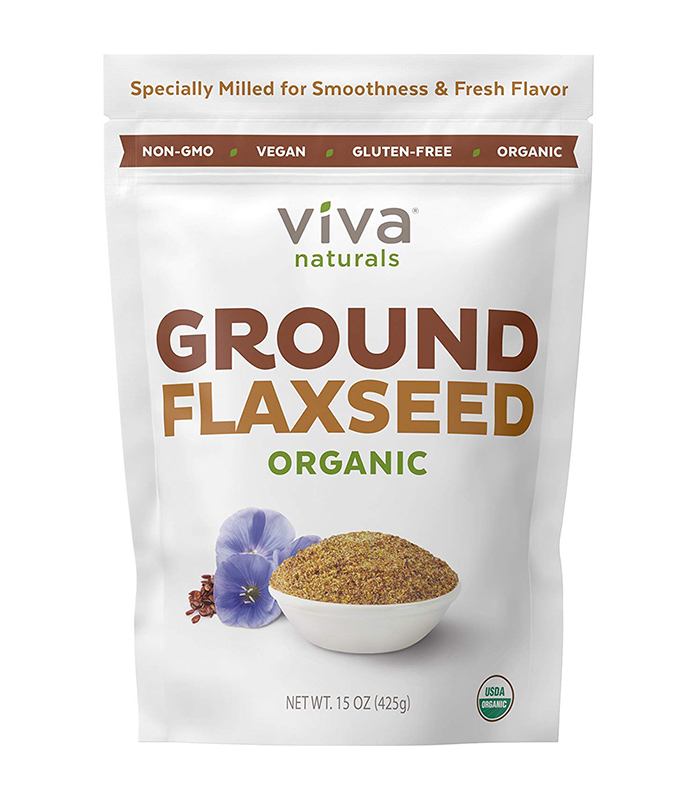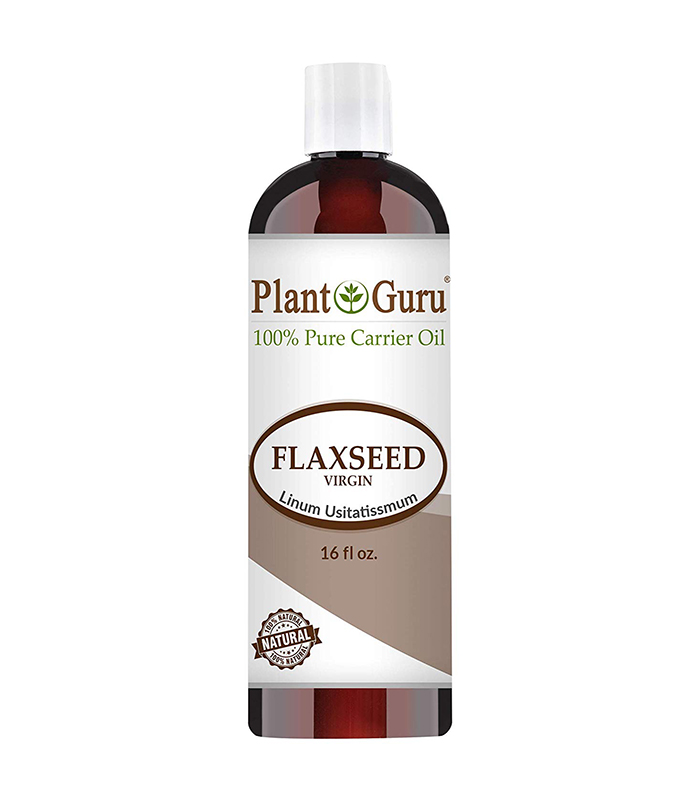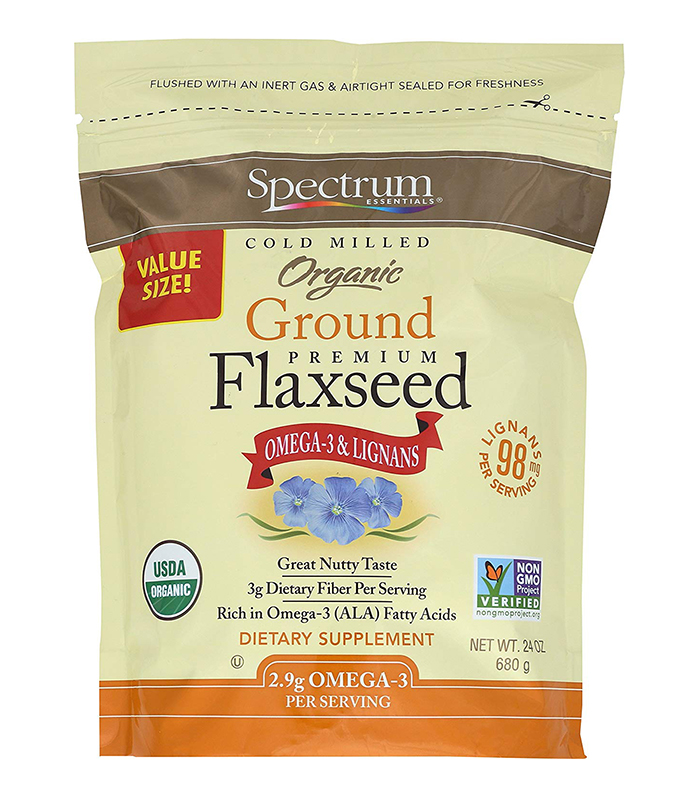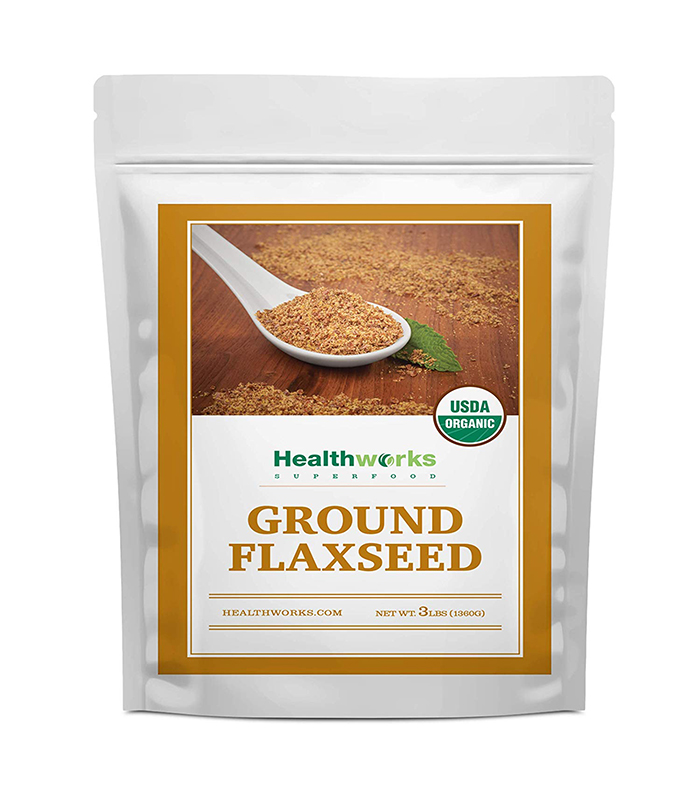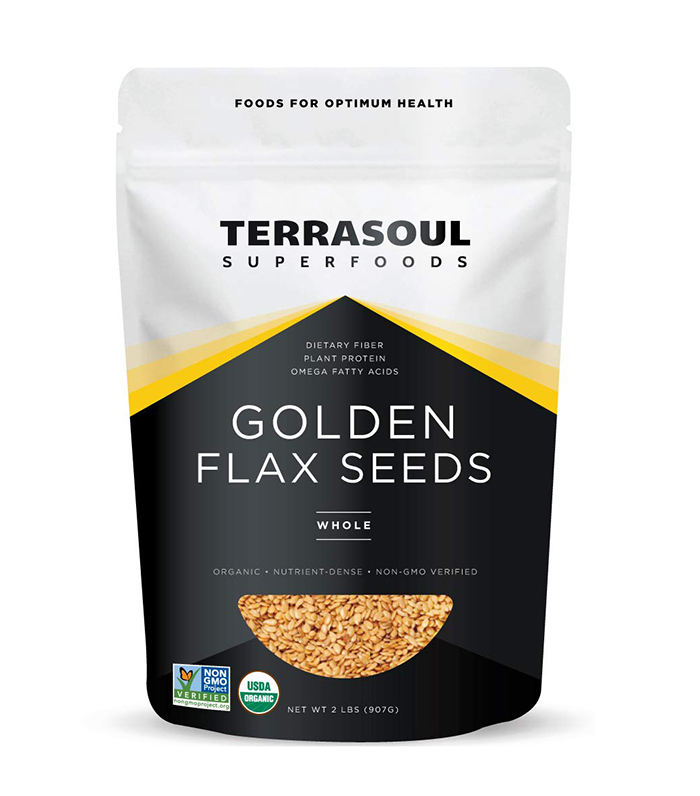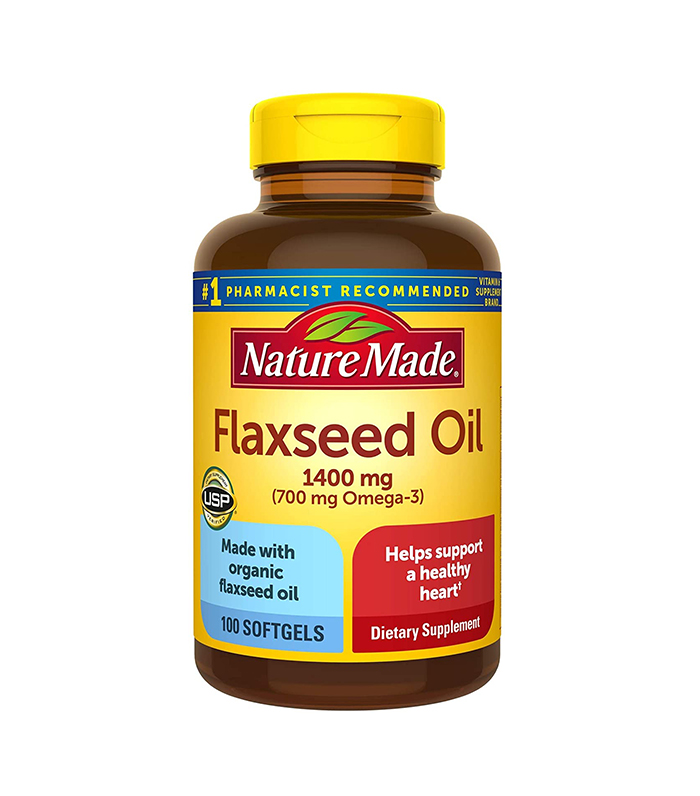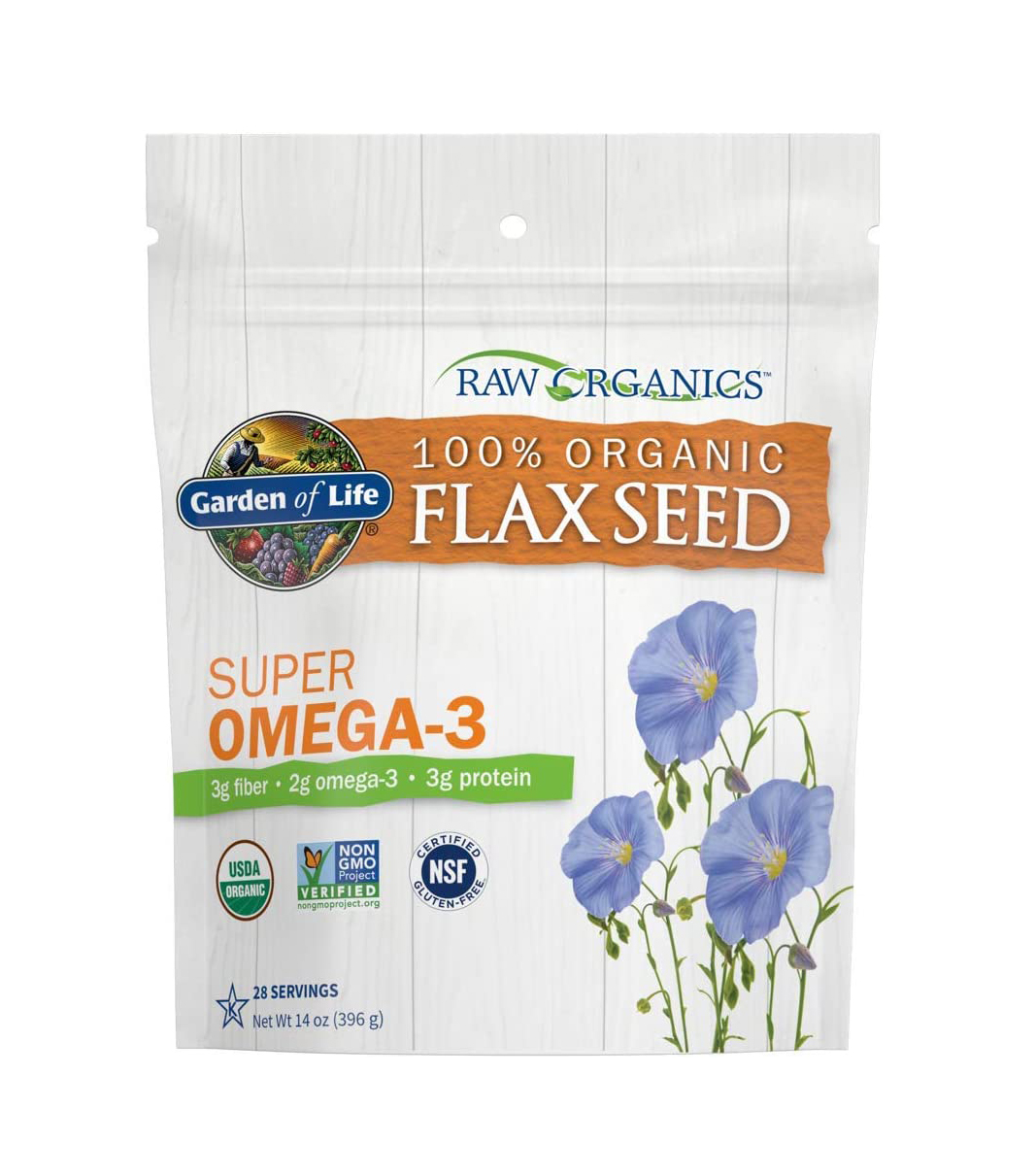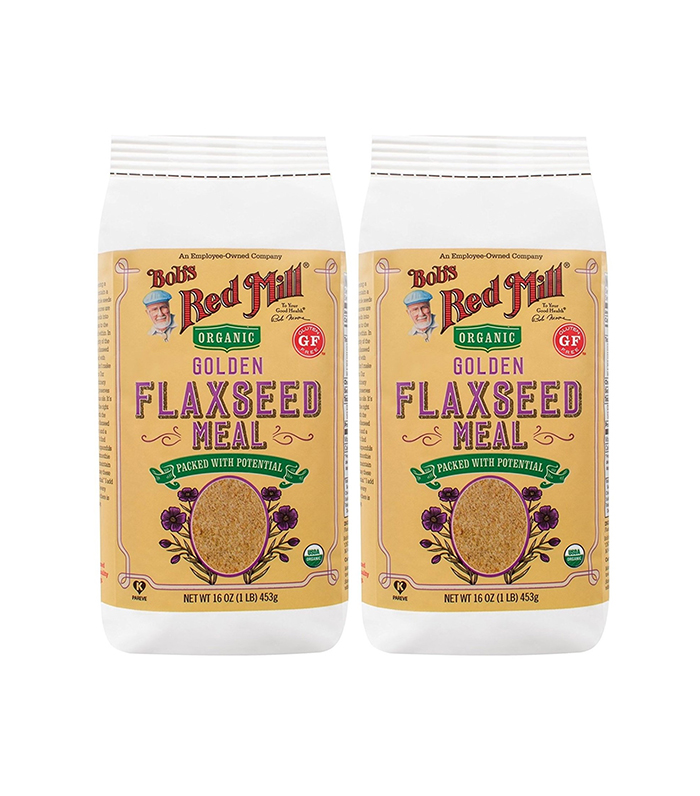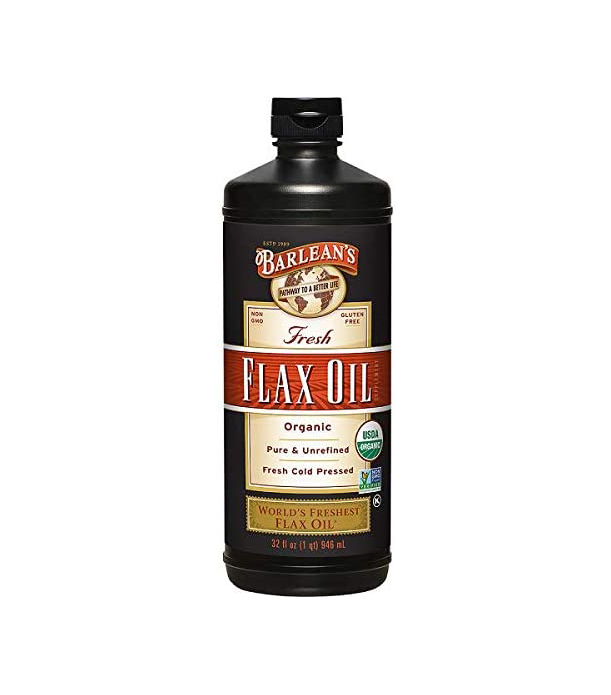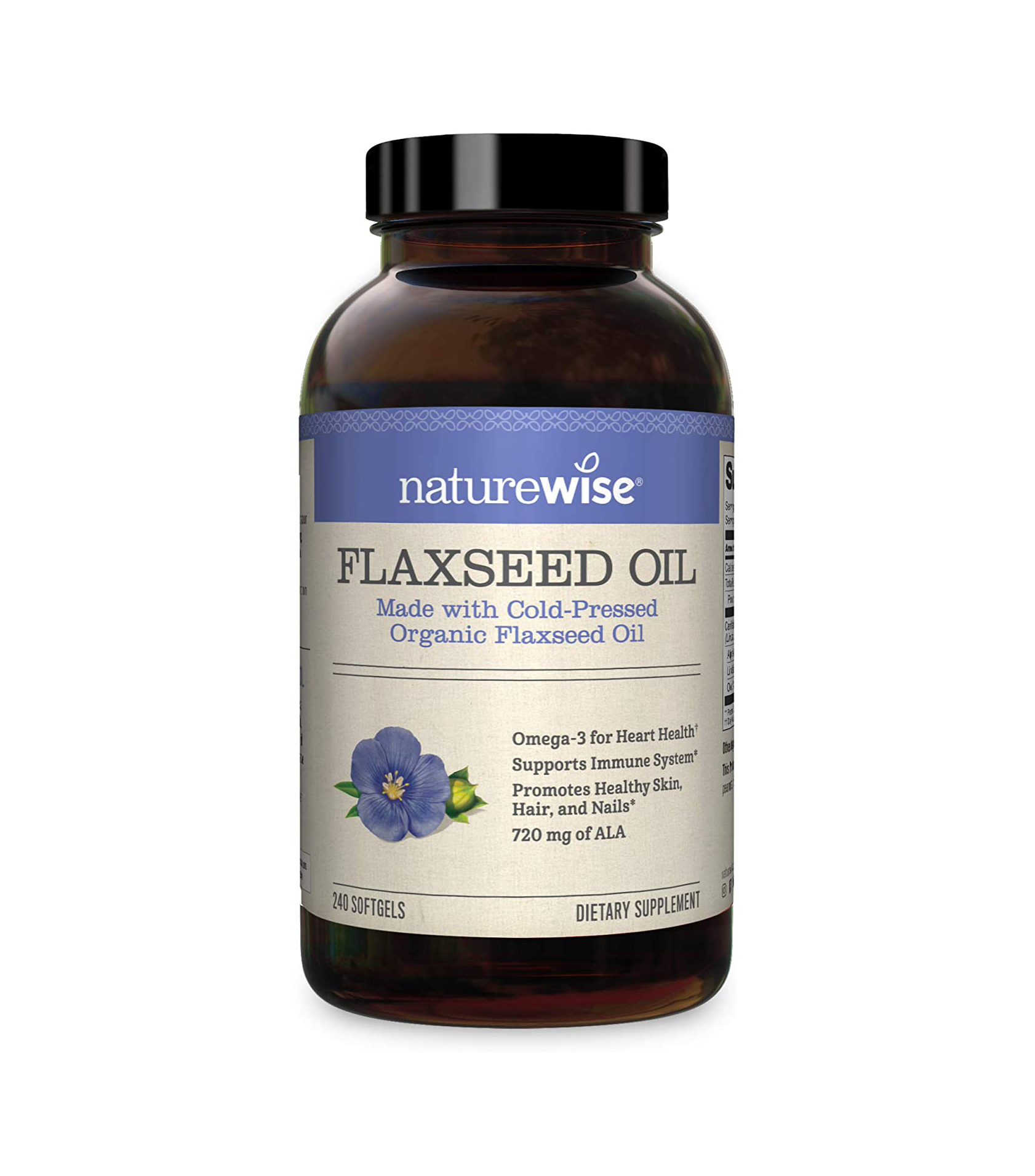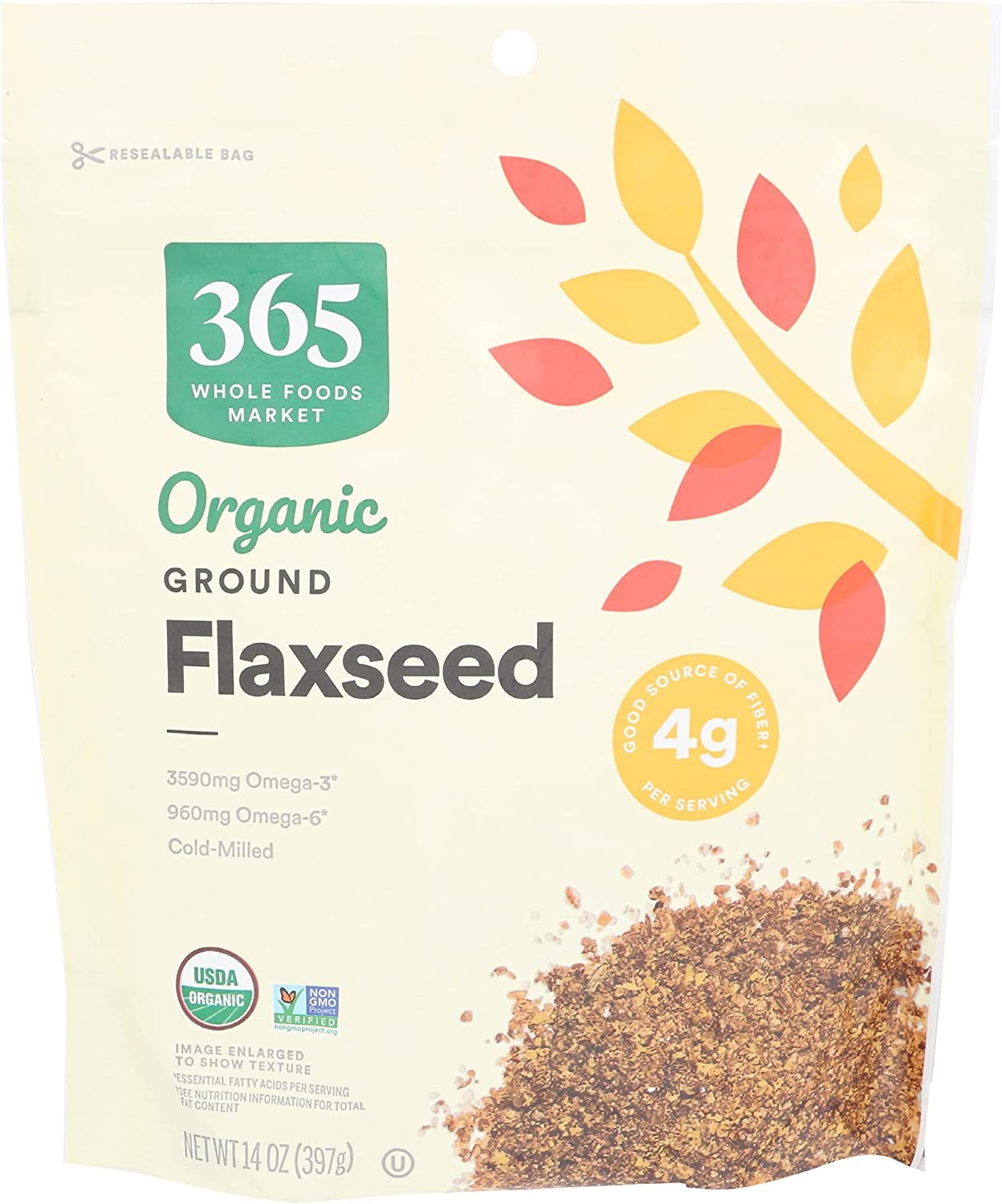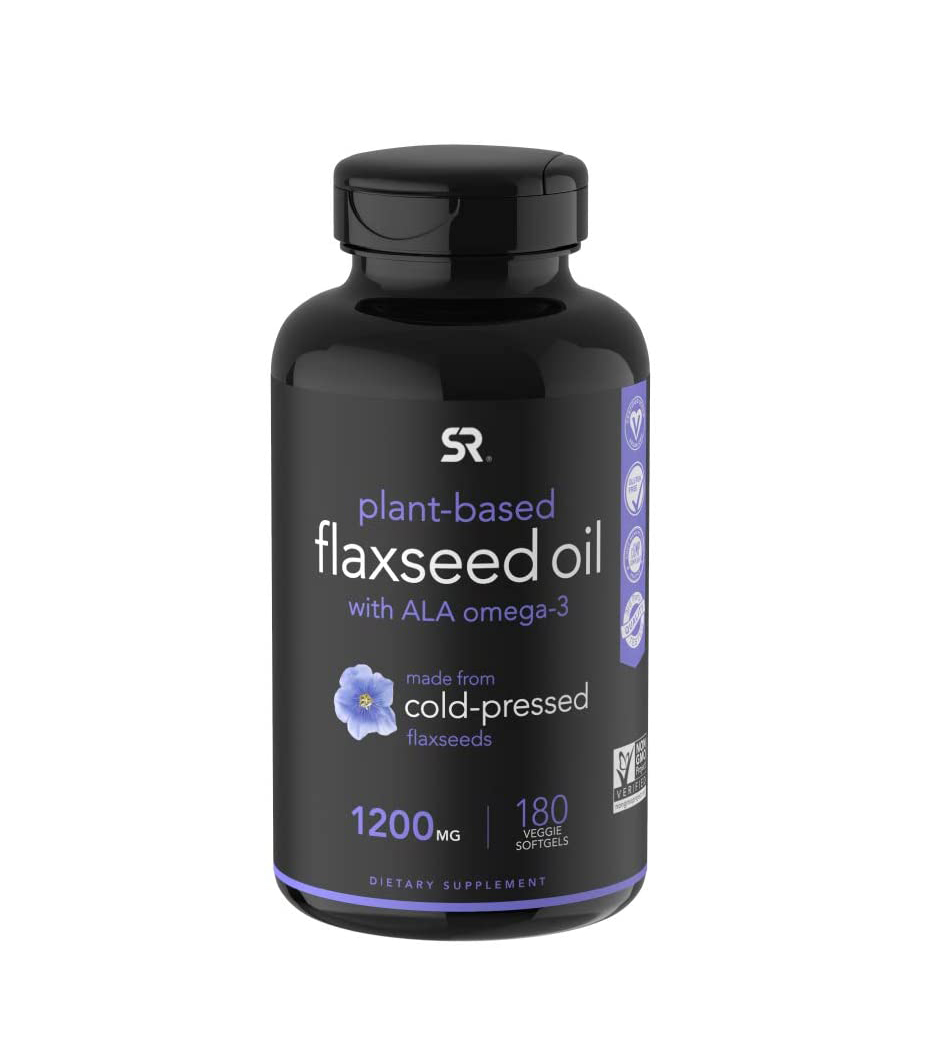The Common Ingredient That Can Help Inflammation, Skin, Digestion, and More
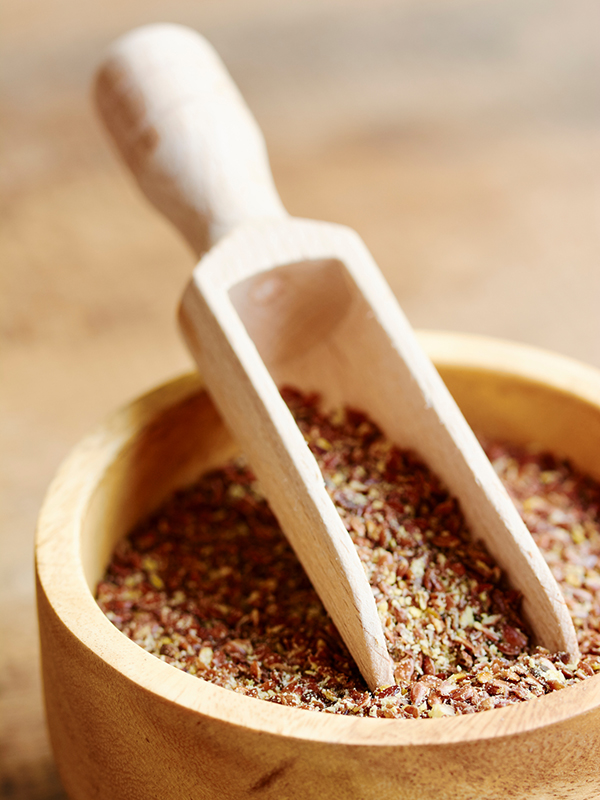
One of the ways you can hydrate your skin is from the inside, meaning the types of foods and nutrients you consume. Recently, my skin was so dry because of overall body inflammation, so I decided to change up my diet and increase my intake of omega-3s by incorporating them into my diet. Through some research, I learned that flaxseeds were a good source, which was the perfect solution for me, as I was able to mix them in oatmeal, smoothies, and other healthy baked concoctions instead of just taking a supplement.
To dig deeper into flaxseed benefits, I spoke to Sarah Greenfield, RD, CSSD, a functional medicine dietitian from Fearless Fig.
1. Lowers Inflammation
Flaxseeds are used in many anti-inflammatory diets as the essential fatty acids like alpha-linolenic acid (ALA) and lignans, which help lower inflammation—good for those who suffer from arthritis, joint inflammation, or skin conditions like eczema or psoriasis. According to Harvard Health Publishing, flaxseeds are the best sources of ALA. In one tablespoon of flaxseed oil, there are 6.3 grams of ALA compared to its counterparts of walnut oil, which has 1.4 grams per tablespoon, and olive oil, which only has 0.1 gram. Additionally, flaxseeds are a great source of fiber and potassium.
2. Hydrates the Skin
Because of the aforementioned fatty acids, it can help keep your skin supple and hydrated. In addition, flaxseeds increase the body's natural oil production, which helps keep skin soft. Applying flaxseed oil topically will allow the skin to still absorb the fatty acids the body needs. It balances out the skin's own oil and can also fight wrinkles by plumping the skin. You can purchase flaxseed oil and use it directly on your skin or even look for beauty products that incorporate it.
3. May Help Lower Your Cancer Risk
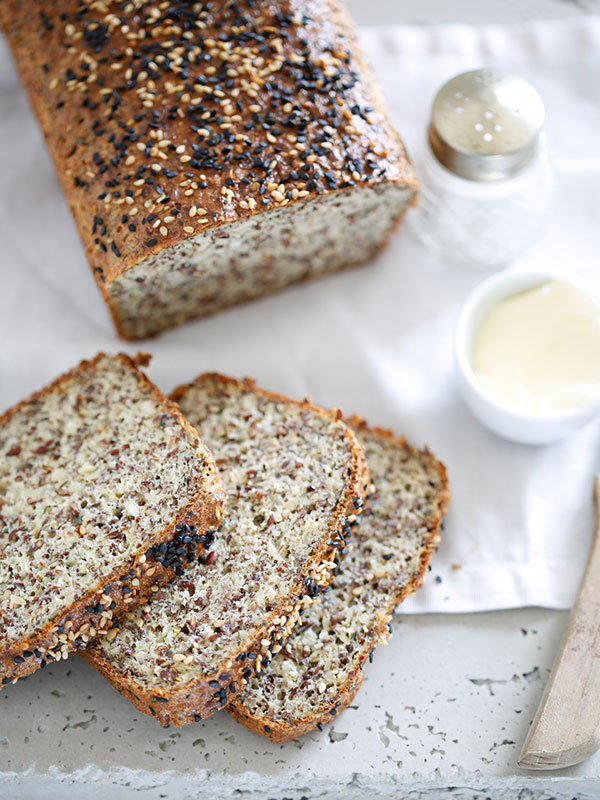
Because of the high amount of lignans flaxseeds contain, it may help lower the risk of cancer, specifically breast, prostate, and colon cancer, according to a study published by Frontiers in Nutrition. But what are lignans? They're plant compounds that have antioxidant and estrogen properties. And flaxseeds contain up to 800 times the number of lignans compared to other plant foods.
4. Rich in Protein
Many vegetarians use flaxseeds as a source of protein, as they are high in amino acids like arginine and glutamine. In fact, one tablespoon of ground flaxseed contains 1.28 grams of protein, so adding (or sneaking) it to meals can help beef up (pun intended) your protein intake for heart and immune health.
5. Rich in Fiber
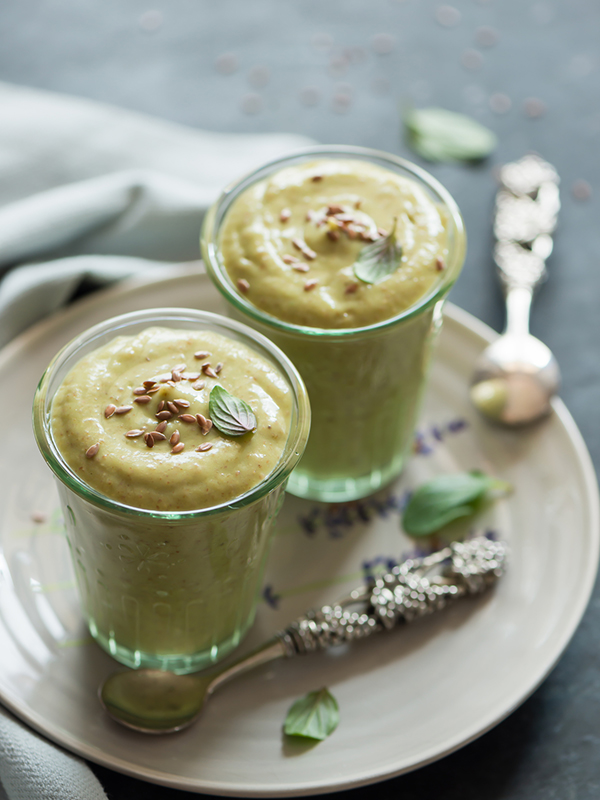
Fiber is essential in helping you feel full longer and regulating blood sugar and cholesterol levels in addition to feeding your gut bacteria. One gram of ground flaxseed contains 2 grams of fiber.
6. Helps With Digestion
Greenfield also shares this tip: "For people who experience constipation, two tablespoons of ground flaxseeds before bedtime can be helpful for alleviating constipation." Essentially, the insoluble fiber helps aid this by adding bulk to your digestive waste, therefore, acting as a natural laxative.
7. Can Help With Weight Loss
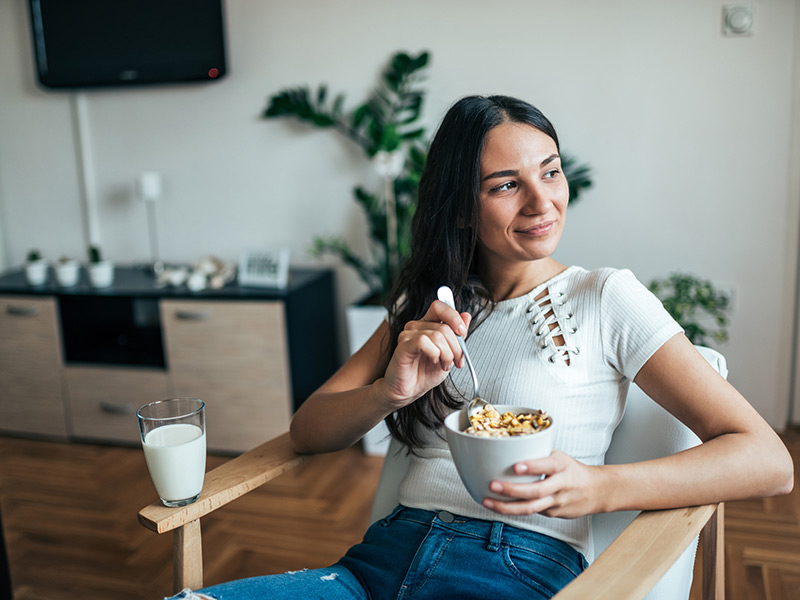
Because of the high fiber content, a diet with flaxseeds keeps you fuller longer. I find that because it is so easy to incorporate into meals, I don't feel "heavy" but rather just satiated with steady and stabilized blood sugar levels until my next meal.
8. Lowers "Bad" Cholesterol
Goodbye, LDL (aka, the "bad" cholesterol, low-density lipoproteins! ). Flaxseeds are beneficial in helping lower them, according to some studies conducted by the Mayo Clinic. The phytosterols found in flaxseeds have a molecular structure similar to cholesterol, and because of this, cholesterol isn't absorbed as much within the intestines.
Some Important Notes
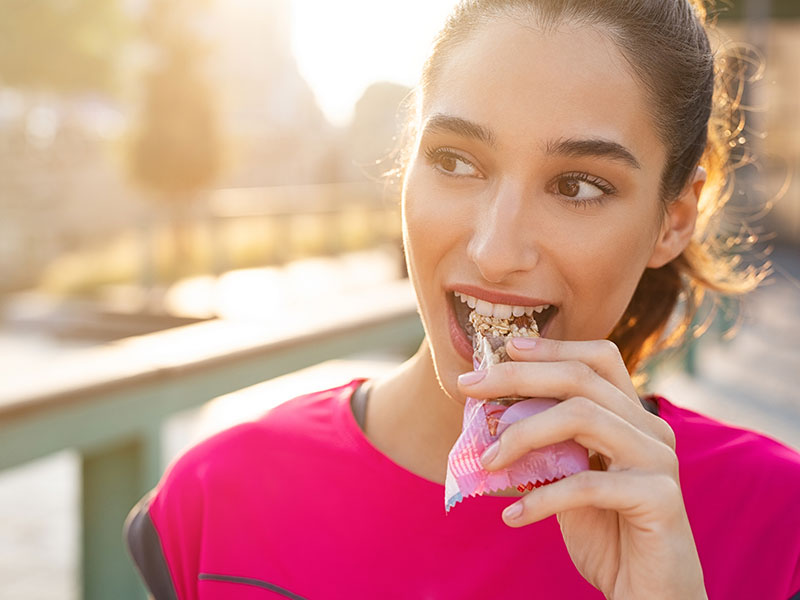
However, as with many things, too much of something can have an inverse effect and be actually bad. "Even though a food is healthy, you can consume too much of it. I like to rotate different foods from flax to hemp to chia and so on to get a nice diversity in the diet," shares Greenfield.
She explains that the state of the seed actually matters. Flaxseeds are best when they are grounded so the body can access all the nutrition that is inside the hard hull. Given this grounded state, it makes it easy for anyone to start incorporating this little seed in their diets.
My favorite personal baking tip is given my egg allergy, you can substitute the use of eggs in a recipe with a "flax egg" which is created by mixing one tablespoon of ground flaxseeds with three tablespoons of water. After stirring the two, let it sit a bit to get that eggy consistency and then use it as needed in all your baking needs.
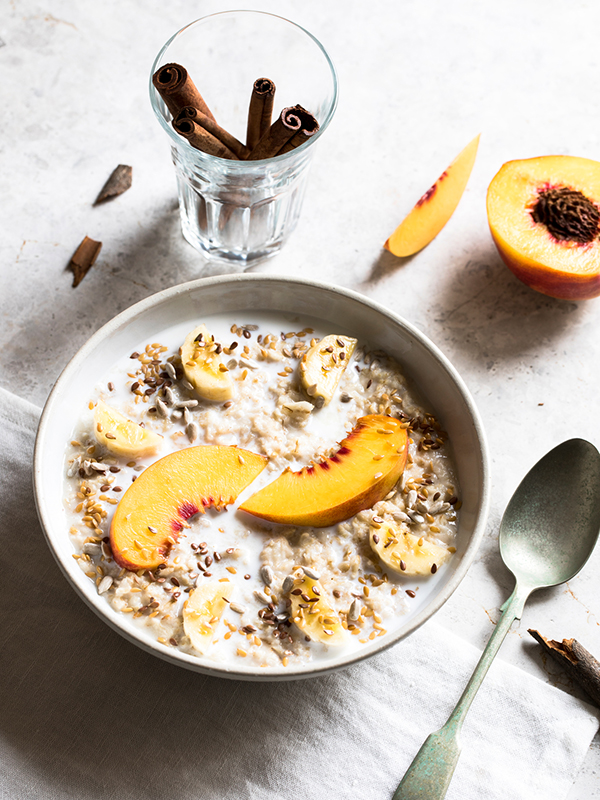
Greenfield shares some of her favorite recipes with the star ingredient—from an easy-to-make flaxseed pudding to be topped with your favorite berries or nuts to a flaxseed energy protein bites for any on-the-go snacking. Take a look…
Cinnamon Protein Energy Bites:
Ingredients:
1/3 cup oats (quick)
1/4 cup oat flour
1/4 cup vanilla protein powder
1/4 cup ground flax seed
2 tbsp chia seeds
1 1/2 tsp cinnamon
1/2 cup almond butter
1/4 cup maple syrup
1 tbsp unsweetened almond milk (optional)
In a large mixing bowl, combine quick oats, oat flour, protein powder, ground flax, chia seeds, and cinnamon. Fold in the almond butter and maple syrup until a thick dough forms. If it is too thick to work with, add the almond milk.
Use a tablespoon to scoop out dough and roll into balls, approximately one-inch in diameter. Chill in the fridge for at least 20 minutes before serving. Enjoy!
Keep the energy bites in the fridge for up to seven days or in the freezer for up to three months. Always serve chilled.
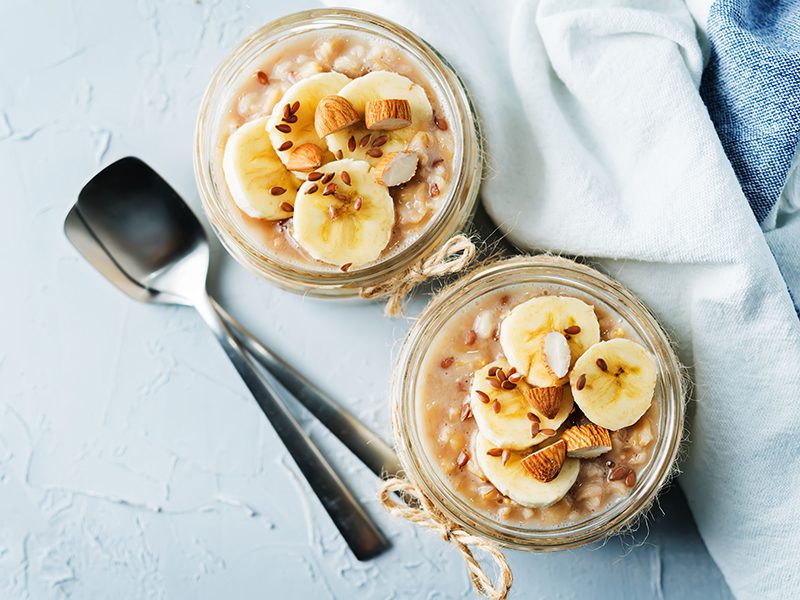
Flaxseed Pudding:
Ingredients:
2 cups ground flax seed
3 cups unsweetened almond milk
2 tbsp maple syrup
1 tbsp cinnamon
Combine all of the ingredients in a large container and mix well. Refrigerate for at least one hour or until the ground flax has set.
Stir well, top with cinnamon and divide into cups or containers if on-the-go. Enjoy!
Refrigerate in an airtight container for up to five days. Pro tip: Top with your favorite nuts, seeds, and/or berries.
More Flaxseed Products
Next up: This Secret All-Natural Ingredient Has So Many Healthy Uses
This article was originally published at an earlier date and has since been updated.
Disclaimer
This article is provided for informational purposes only and is not intended to be used in the place of advice of your physician or other medical professionals. You should always consult with your doctor or healthcare provider first with any health-related questions.
-
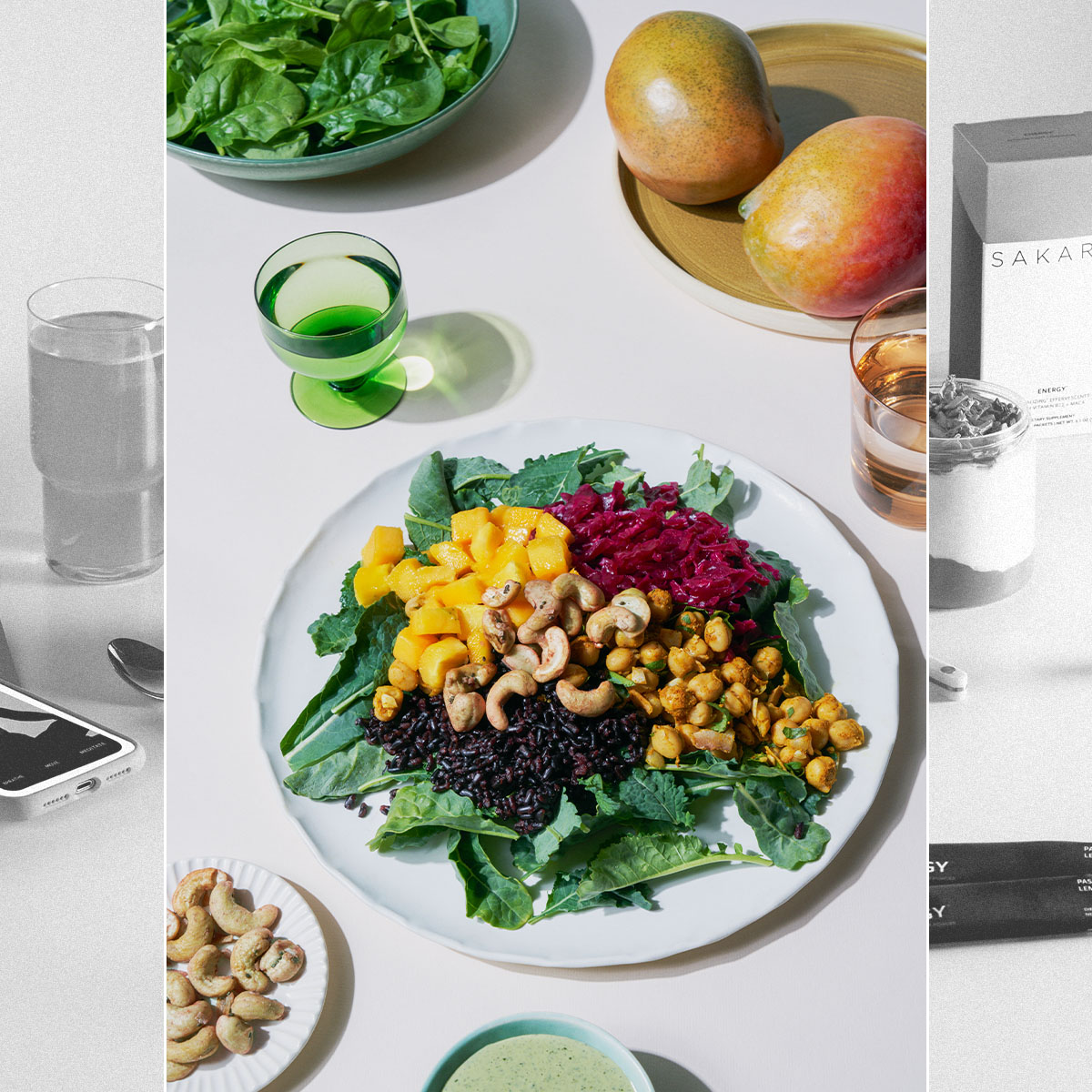 Bella Hadid and Gwyneth Paltrow Apparently Love Sakara Life, so We Tried It for 30 Days
Bella Hadid and Gwyneth Paltrow Apparently Love Sakara Life, so We Tried It for 30 DaysHere are our honest thoughts.
By Erin Jahns
-
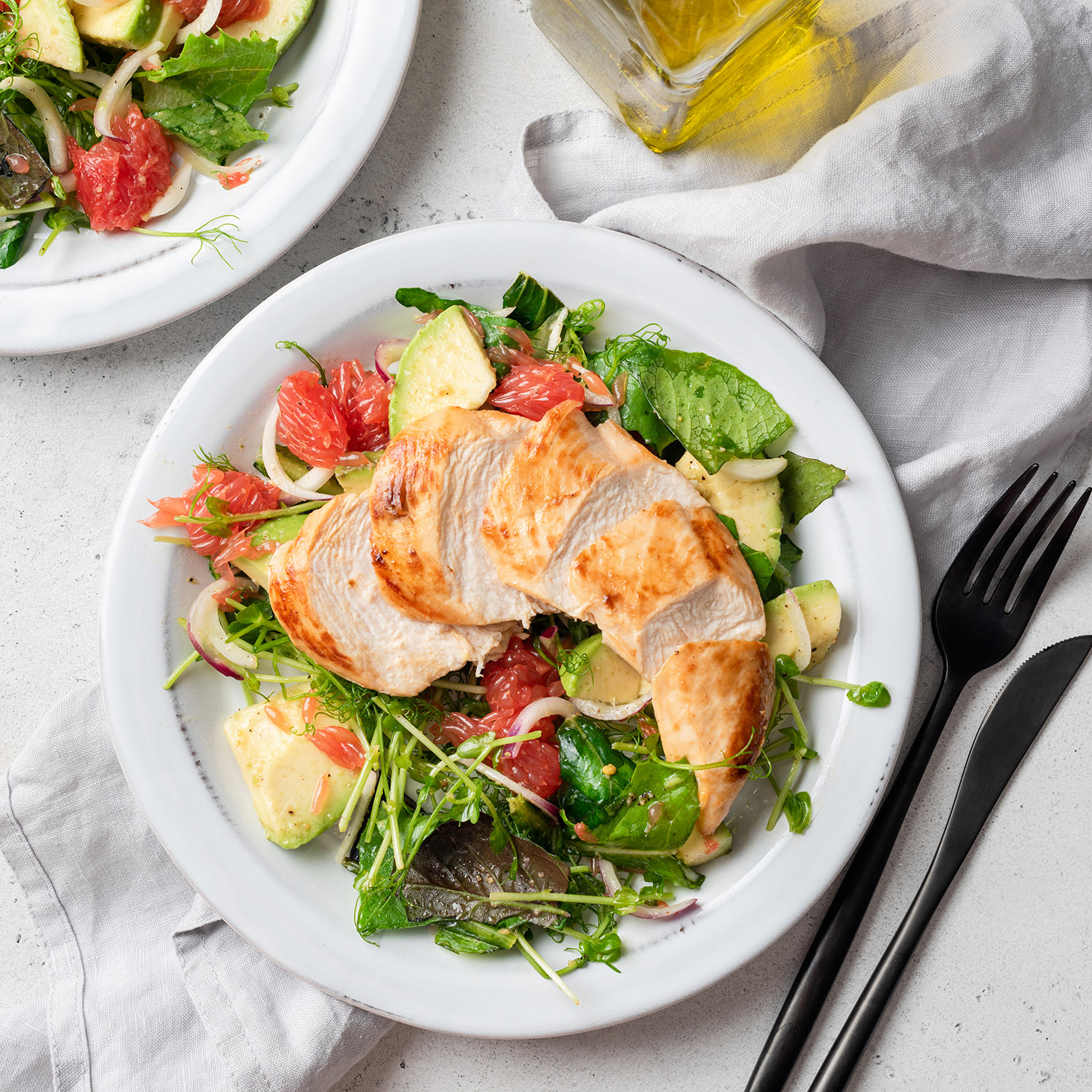 The 6 Warning Signs You're Not Getting Enough Protein
The 6 Warning Signs You're Not Getting Enough ProteinAnd what to eat to up your intake.
By Sarah Yang
-
 Everything This Professional Ballet Dancer Eats to Fuel Her for Performances
Everything This Professional Ballet Dancer Eats to Fuel Her for PerformancesHer grocery staples include high-quality French butter.
By Candice Aman
-
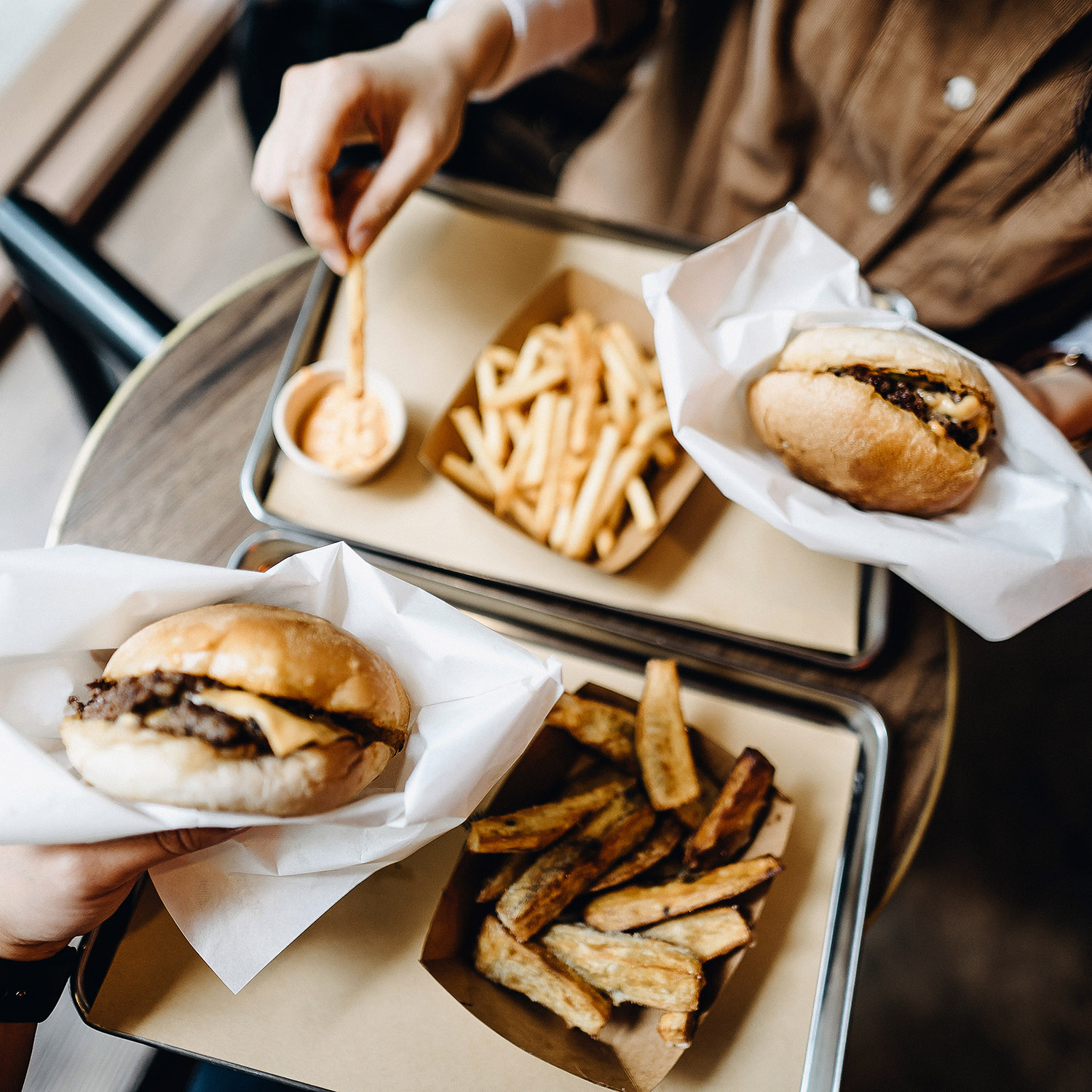 These 8 Foods Are the Worst for Rosacea—Here's What to Eat Instead
These 8 Foods Are the Worst for Rosacea—Here's What to Eat InsteadControl those flare-ups.
By Sarah Yang
-
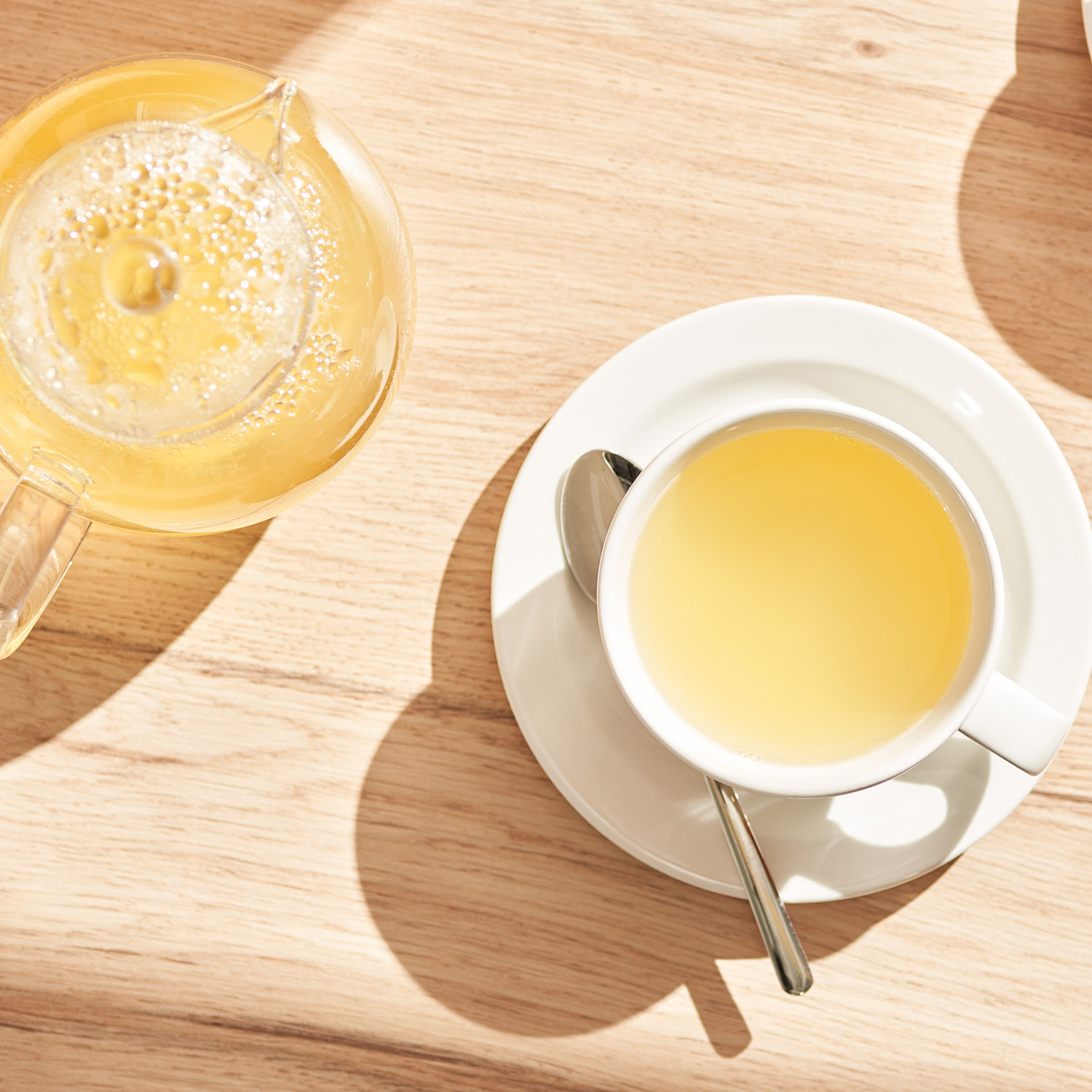 15 Things That Cause Bloating and How to Get Rid of It ASAP
15 Things That Cause Bloating and How to Get Rid of It ASAPTry these.
By Sarah Yang
-
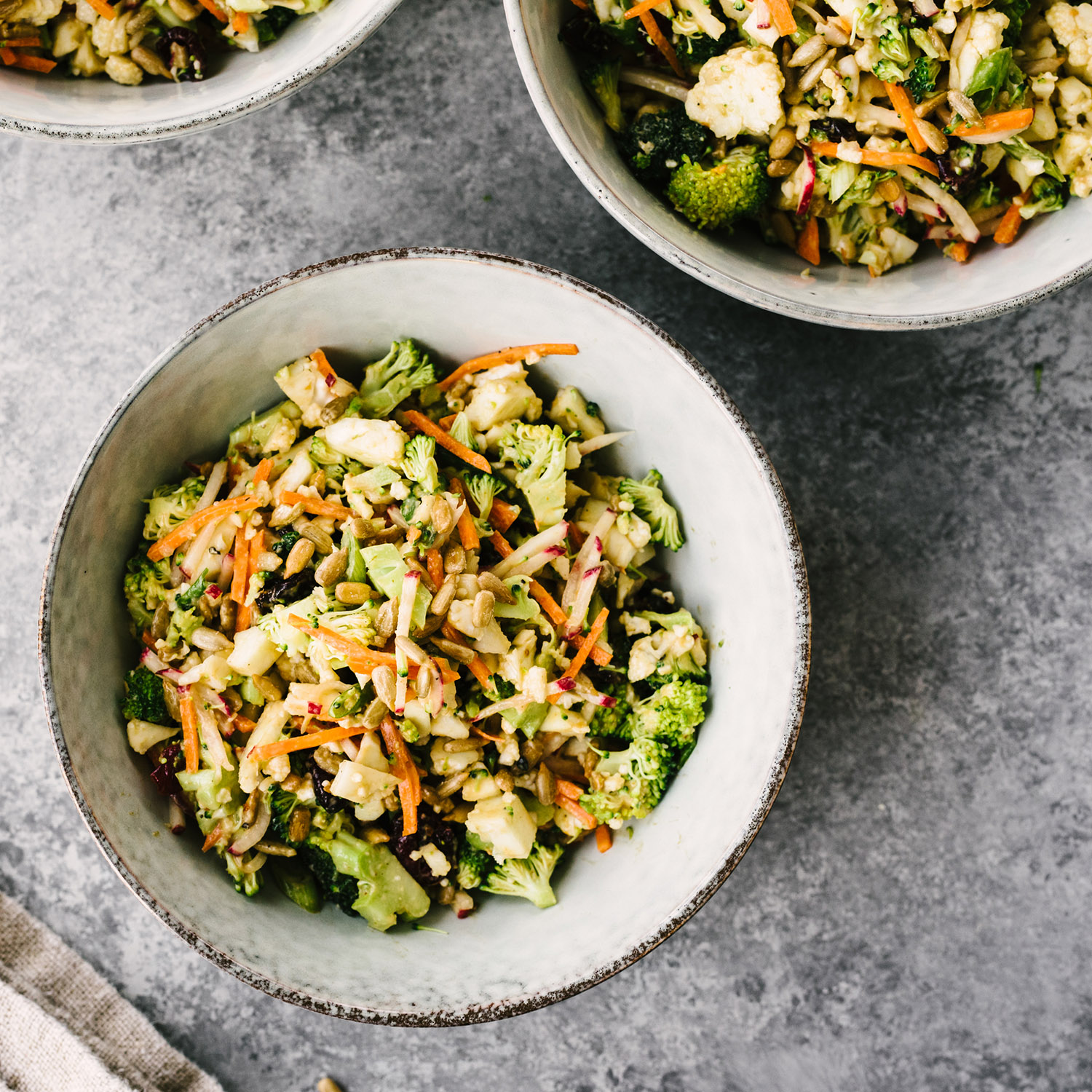 Is the Alkaline Diet Overhyped? What Experts Want You to Know
Is the Alkaline Diet Overhyped? What Experts Want You to KnowHere's how it works.
By Sarah Yang
-
 I'm an Imperfect Dietitian and My Key to Eating Healthy Meals Is Convenience
I'm an Imperfect Dietitian and My Key to Eating Healthy Meals Is ConvenienceTake a peek at my weekly grocery staples.
By Candice Aman
-
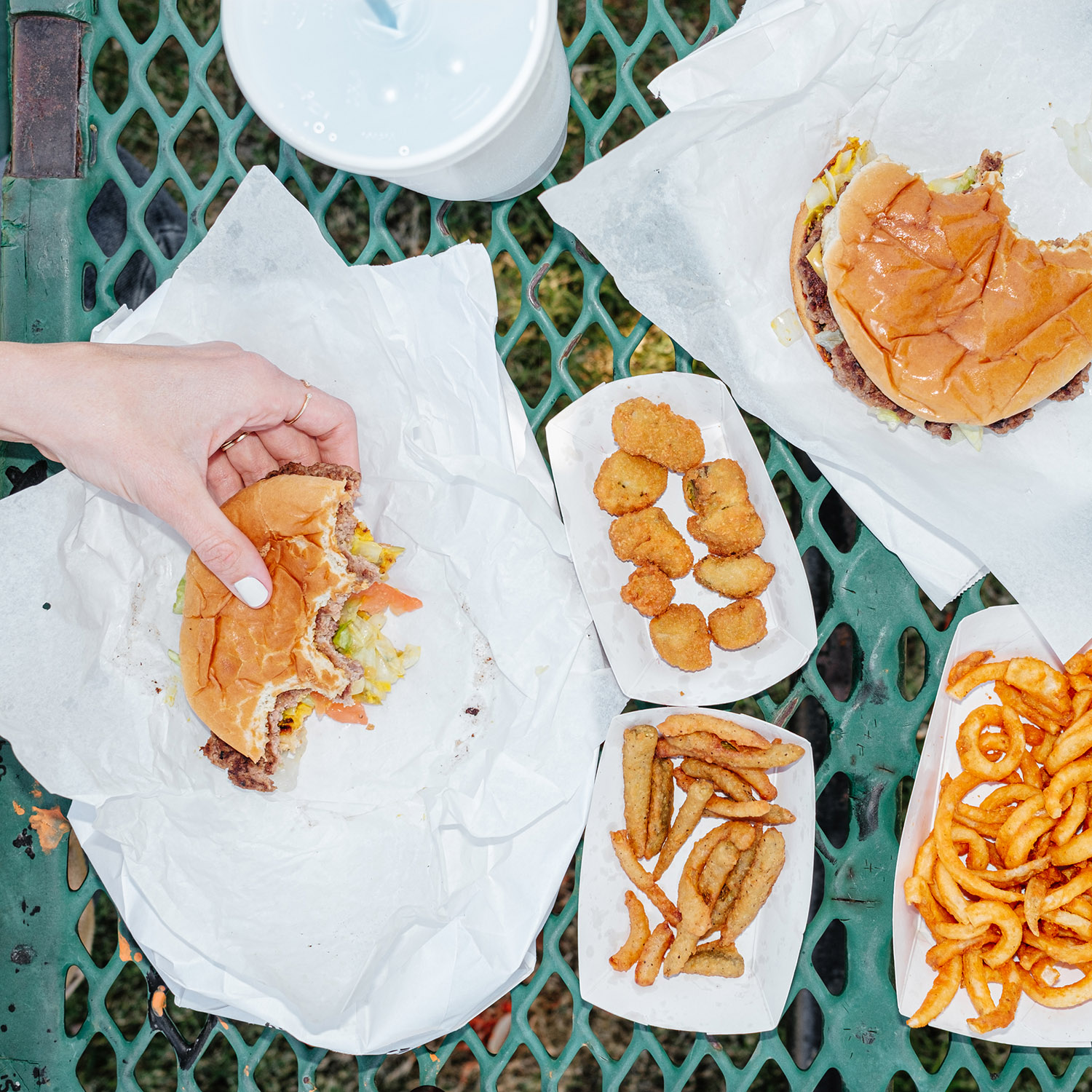 Avoid These 6 Foods—They'll Wreck Your Gut Health
Avoid These 6 Foods—They'll Wreck Your Gut HealthWhat to eat instead.
By Sarah Yang
